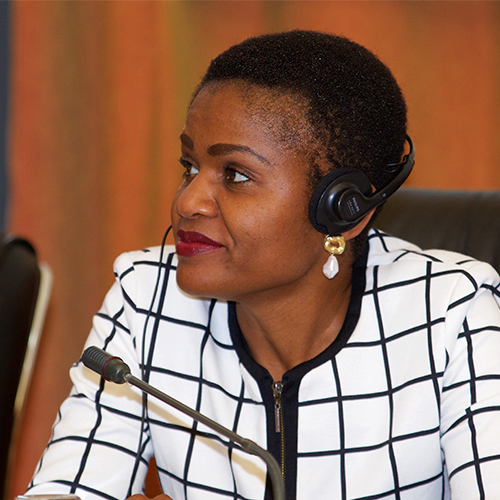Experts have advised that Africa needs to employ complementary tools to indoor residual spraying (IRS) and the use of treated mosquito nets to eliminate malaria.
One of those tools is larval source management (LSM).
According to an operational manual designed by the World Health Organization (WHO), unlike long-lasting insecticide-treated nets (LLINs) and IRS, which target the adult mosquito vector, LSM targets the immature, aquatic stages of the mosquito, thereby reducing the number of adult vectors.
“If all potential breeding sites were eliminated or treated, LSM would reduce the number of infective bites per person per year, thereby reducing malaria transmission,” says WHO.

Dr Susan Imbahale of the Technical University of Kenya said Africa has made “so much progress using IRS but we seem to have stagnated,” hence the need for another complementary tool like LSM that can help the continent to move towards the elimination of malaria.
“LSM has been the main focus of control programs in many countries, especially in the US, Canada, throughout Europe, Brazil, and Singapore. Some African countries have also used it and we need to learn from them,” said Dr Imbahale in a webinar organized by African Institute for Development Policy (AFIDEP) on World Malaria Day on April 25, 2023.
“We shouldn’t be shifting from one tool to another; rather, we need a mix of tools that would work maybe in different contexts to move us closer to eradication.”
Dr Imbahale said IRS and treated nets only target mosquitoes inside houses. “What happens to the ones biting us when we are outside?” she posed.
She said LSM was previously the primary malaria control strategy in many African countries. However, the arrival of the IRS in the 1950s led to a change of tack.
“By using DDT (dichloro-diphenyl-trichloroethane) in IRS, many countries eliminated malaria; therefore, this shifted the focus of entomologists, scientists, and donors at that time to IRS. Then in the 1980s, efforts were geared towards insecticide-treated bed nets,” she said.
“The research and donor focus was therefore on attacking vectors indoors and we forgot about LSM.”

Dr Rose Oronje, the Director of Public Policy and Knowledge Translation and Head of the Kenya Office at AFIDEP, who moderated the webinar, wondered why Africa would shift from dealing with the source of the mosquitoes and still hope to eliminate malaria by dealing with mosquitoes which are biting people inside their houses.
Elimination or treatment of all potential mosquito breeding sites is difficult if not unlikely for most rural areas of sub-Saharan Africa.
“We shouldn’t be shifting from one tool to another; rather, we need a mix of tools that would work maybe in different contexts to move us closer to eradication,” Dr Oronje said.
The WHO says elimination or treatment of all potential mosquito breeding sites is not easy in most rural areas of sub-Saharan Africa but elimination of larval habitats can be a cost-effective and long-term solution.
Tackling malaria in Africa must be a continental effort because it is difficult for countries to get to zero cases when their neighbors have not achieved the same.
As this year’s World Malaria Day was being marked, studies showed that Africa still carries the biggest burden of the disease, with 95 percent of all the 234 million cases reported worldwide in 2021 coming from the continent.
According to the latest World Malaria Report, Africa accounted for 96 percent of all the 593,000 malaria deaths recorded globally in 2021.

Dr Fredros Okumu, Director of Science at Tanzania’s Ifakara Health Institute said Africa may not attain the zero-malaria target if countries work individually to eliminate the epidemic.
Dr Okumu said tackling malaria must be a joint continental effort because it is difficult for countries to get to zero cases when their neighbors have not achieved the same.
“When most of your cases are imported, there is only so much you can do. I think what they can achieve is zero indigenous cases or zero local transmission,” he said and added that it is not feasible for Africa to eliminate malaria by 2030.
“There are countries like the islands with few neighbors that can achieve the target, but these are rare. The majority of the countries are not there yet,” he said.
Prof Richard Mukabana, Project Director, Health Tech Platform at AFIDEP argued that Africa can eliminate malaria but only if there are combined efforts.
Excellent healthcare systems
These efforts include robust diagnostic tools, innovative strategies to stem parasite and vector resistance to drugs and insecticides, excellent healthcare systems that extend to remote parts of the countries, integrated surveillance systems, and a well-trained health workforce.
Other strategies could include effective vector control, universal healthcare, rapid response to disease outbreaks, and early diagnosis and treatment.
“More importantly, we need to put money on the table to fund control or regulation programs when the need arises,” said Prof Mukabana.
Resistant to insecticides
Kenya is currently conducting IRS in certain parts as part of efforts to control malaria transmission.
John Shikuku, one of the people involved in the activity, said they skip some households due to resistance.
“Some people say the Anopheles mosquitoes may have become resistant to the insecticide used in indoor residual spraying so they cannot disrupt their activities to entertain an exercise that does not control malaria transmission,” Shikuku said.
Dr Imbahale said these tools need to be combined with continuous education because a majority of mosquito breeding habitats in Africa are man-made and research has found that communities do not understand how their activities contribute to the transmission of malaria.
